News |
Key findings from the report indicate a high level of satisfaction among project coordinators who have utilised professional project management services, acknowledging a significant reduction in their workload. The survey, which gathers 64 responses, reveals that coordinators could save 3-5 days a month, emphasizing the crucial role of professional project management in enhancing project implementation. Furthermore, the report highlights the greater need for professional project management support within the private sector compared to Research and Technology Organisations (RTOs) and other public sector entities. Internal communication, good management practices, and a focus on exploitability are also among the essential components for the successful implementation of EU-funded projects. The EAIC's report also offers valuable recommendations for the European Commission, such as further simplifying the financial and contractual rules and applying a standard reimbursement rate of 100% for management activities, among others. These insights aim to foster a more efficient and effective project management practices across European collaborative projects. This report is a testament to EAIC's commitment to supporting European innovation through better project management practices, providing valuable guidance for EU project consortia. For further details, please contact us at [email protected] META Group has joined EAIC in February 2024!
Upon joining, Alessia Melasecche, META Group CEO, said “Our commitment to maximizing the impact of R&I finds a synergistic match with EAIC's dedication to enhancing professional skills and expertise in European R&I projects.” She added: “our participation in EAIC will allow us to contribute to and influence innovation policies, which is a core aspect of META’s mission." Welcome to META Group and its team! Find out more about their services here. EAIC is excited to announce its attendance at the upcoming EARMA conference, held in Prague from 24-26 April. We are sending the co-leader of our Project Management working group, Virginie Robin, to take part in a session dedicated to professional project management on Tuesday 25 April.
Virginie’s presentation will emphasise the added value professional project management brings to European research and innovation collaborative projects. At EAIC, we firmly believe that professional project management is vital to the success of any project, particularly those that involve complex collaborations across different institutions, countries, and disciplines. That's why we're committed to sharing our insights on this important topic at the EARMA conference. We invite all attendees to join us and learn more about the importance of professional project management for successful collaborative projects. EAIC Mutual Learning Webinar: Freelancers, Lump sums & Carbon Neutrality in Horizon Europe Projects9/12/2022 On Friday 16 December, EAIC organises a webinar in the context of its work on Project Management. EAIC Members will share knowledge on HEU related matters such as freelancers in projects, lump sums projects, carbon neutral projects etc.
When? Friday 16 December 2022 (15.00 - 16.00 CET) By whom? This event is organised by EAIC Member Polite and Neovia. For whom? This workshop is reserved to EAIC members. Interested? Write to [email protected] How important is professional project management to your project?
You have until 30 November to make your voice heard here on the matter! EAIC has launched a survey to collect insights with regards to management of EU-funded projects, collaboration with professional project management organisations, and project implementation processes. The survey can be completed in 15 minutes, comprising multiple-choice questions and free text spaces to add comments and insights regarding any ongoing, recent or past R&I Framework Programme collaborative projects you have participated in (Horizon 2020 and/or Horizon Europe). With your feedback, you will help European innovation professionals be better prepared to support you in future EU projects and advocate for improved framework conditions for EC-funded research and innovation projects. The survey is freely accessible here. EAIC members gathered last week, in Brussels, for the first ever in-person meeting held by the European Association of Innovation Consultants. Members of the Association met on the 23rd of November for a full day of workshops: 40 participants came to Brussels and over 20 others connected online to the various sessions organised by the Association.
The purpose of the meeting was to invite EAIC members to co-create and prepare the Association's action plan for next year. For the past 2 years, meetings were held online, mainly because of the sanitary crisis, but it was time for a physical meeting to be held to allow for more fruitful discussions and to provide the possibility for members to meet. The meeting was held the day prior to the EIC Summit, attended by many EAIC members. The EIC Accelerator has been a focal point of attention of the association for over the past year, and hence, it was the ideal time to organise this gathering. Opening the event, Pekka Koponen, President of the EAIC, recalled some of the Association's most important achievements over the past 2 years, such as: the promotion of a Manifesto on professional project management, the adoption of a code of conduct, a constructive dialogue established with the EIC, the publication of our collective NGEU guide, strong visibility of the Association thanks to dynamic communication, the hiring of a Secretary General, Marie Latour, since October. Diego Soro, EAIC Board Member, presented the current membership structure and the objectives for growth for next year to ensure presence in all EU Member States; EAIC members are currently present in 25 European countries, of which 18 are EU Member States. Yiannis Geragotellis presented the results of an internal survey on new initiatives and project collaboration. 7 parallel sessions were held, in line with most of the EAIC’s active working groups, each of these led by one or several board members:
Each working group defined its objectives, a work plan, various KPIs and their budget for next year. In the final and closing session, all the leaders of the working groups presented the progress made and reported what had been discussed in the parallel sessions. The complete and consolidated action plan will be presented to all members of the Association in the beginning of January 2022, in the monthly members' meeting. It was a very productive gathering and networking was encouraged among members, who were able to share their experiences and concerns. Horizon Europe, the long-awaited successor to Horizon 2020, and the world’s largest transnational research and innovation programme, is finally ready to take off!
The programme is designed to support European competitiveness by creating new growth and jobs based on scientific knowledge and technological development, all the while tackling societal challenges and helping to sustain European socio-economic models and values. So, how does it work concretely? The programme has been built on three main Pillars, each of them having a different objective:
Beyond accumulating new knowledge, developing new technologies or increasing European competitiveness, Horizon Europe aims to achieve tangible benefits for European citizens related to the main challenges addressed by the programme (Digital transition, Ecological transition (Green Deal), Health resilience, Economic resilience and recovery). Horizon Europe is evolving into an impact-driven framework programme, based on a new holistic monitoring approach. This new Horizon Europe programme will be monitored as a virtuous circle to design (Intervention logic at the level of clusters, destinations, missions), implement (at the level of strategic Plan, Work Programme Proposal template, Project reporting) and assess the programme’s impacts (through Monitoring Key Impact Pathways, Management & Implementation Data, Interim and ex-post evaluation). For maximising impact at the level of the programme, new features have been introduced, among them, enlarged international cooperation, an in-depth open science policy, missions orientation and citizens’ involvement, to name a few. The Horizon Europe Legislation has defined 3 types of impacts, tracked with key Impact Pathways (KIP). The impact logic of the programme is framed by Key Impact Pathways (KIP) detailed in the figure below and defined by Horizon Europe legislation. The Research and Innovation days will open tomorrow, marking the long-awaited launch of the first Horizon Europe 2021 calls. Thousands of companies, research centres and SMEs with existing experience in collaborative European Research and Innovation (R&I) projects, as well as other applicants, new to this programme, are in the starting blocks. European Innovation Consultants as well.
This week will see the opening of the first calls under Pillar II of the Horizon Europe Programme. Horizon Europe’s total budget for the next 7 years amounts to the record amount of €95.5 bn, of which half will address global challenges and European industrial competitiveness. Over 700 topics (collaborative projects to be funded by the European Commission) will be published in the next 2 years, funding thousands of projects involving various partners (industrial partners, research centres, SMEs, or non--profit organisations, etc.) for several years. Each project will require excellent coordination and management skills to ensure public funds provided by the Commission are spent efficiently to develop novel solutions. From a maturity point of view, projects will span from basic research to applied innovation, ready to be commercialised when the project is finalised. Ambitious exploitation strategies (i.e. what will happen with the research and innovation beyond the project lifetime) will have to be included in funding applications to convince evaluators. In 2019, Innovation Consultants across Europe decided to strengthen their collaboration through EAIC, the European Association of Innovation Consultants. The purpose of the association is to allow for better recognition of their work and contribution to the support of many actors, such as industry and research organisations, who are willing to be part of EU projects to develop breakthrough innovations but have limited expertise and/or time to access these funding instruments. Consultants advise them on how to develop their innovation process as well as on how to access public funding needed to bring their innovation to market. With the new Horizon Europe collaborative calls now opening, Innovation Consultants are ready to support projects based on their previous experience and track records with the previous framework programme. EAIC now includes more than 40 members across the EU with a vast experience in R&I programmes but also in alternative funding opportunities for the private and public sectors in Europe. Under Horizon 2020, the predecessor of Horizon Europe for (2014-2020), the average success rate of 11% has decreased in the last years of the programme as budgets ran out and consortia competed for the remainder of the funding. Many companies and research centres have used the support of innovation consultants, to increase their chances of success , to drive the proposal writing process under time pressure, to find the right partner and support them in the professional management of projects when approved. The members of EAIC have decided to sign a code of conduct which is a prerequisite to be part of the association, which ensures that they respect deontological principles, such as impartiality, e.g. they cannot write proposals and be part of the evaluation committee at the same time. On 21st June, EAIC elected a new board of members composed of 12 company representatives; you can find the composition of the new board here: https://www.eaic.eu/about-eaic.html Consult the full list of EAIC members here: https://www.eaic.eu/members.html View the Horizon Europe calls that have already been announced through the official Work Programmes of the EC here. About EAIC The European Association of Innovation Consultants (EAIC) gathers active Innovation Consultants in the field of European research and innovation projects. The group aims to facilitate the exchange and promotion of best practices and success stories, as well as to uphold professional skills and expertise in European RDI projects. Today, the group gathers 46 members, active in more than 24 countries around Europe. www.eaic.eu The European Innovation Council (EIC) is a key novelty of Horizon Europe and is a European innovation initiative with a budget of approximately €10 billion for the period 2021-2027. The EIC is the result of lessons and achievements from its pilot phase during the period 2018-2021. It combines research on emerging technologies with an accelerator programme and a dedicated equity fund, the European Innovation Council Fund, to scale up innovative start-ups and small and medium-sized businesses (SMEs). Around €3 billion of the EIC’s budget will go towards the EIC Fund. In the infographic below, prepared by EAIC member, Lira, we detail the EIC's funding opportunities (Accelerator, Transition and Pathfinder), taking into account the different deadlines and challenge topics.
European Consultants in Innovation ask for greater recognition of Professional project management in Horizon Europe. In 35% of cases, organizations have relied on consulting companies to prepare their proposals for the current R&I funding programme - Horizon 2020.
As the R&I Days kicked-off in Brussels on 24 September, fifteen consultants in Innovation Management from six European countries gathered together to foster a discussion about common interests with a possibility of future collaborations and actions. The representatives of Innovation Management Consulting Firms addressed the issues concerning the management of European research and innovation projects. The discussion among European consultants also covered the preparations for Horizon Europe, the upcoming Framework Programme. Currently and as it was revealed during the Research and Innovation Days held last week by the European Commission in Brussels, organizations have relied, in 35% of cases on consulting services to prepare their proposals for Horizon2020, the largest funding and research program in the EU. |
Categories
All
Archives
July 2024
|
||||||||

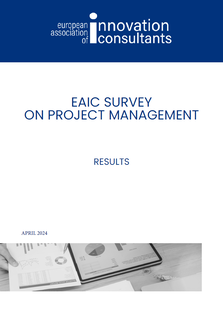


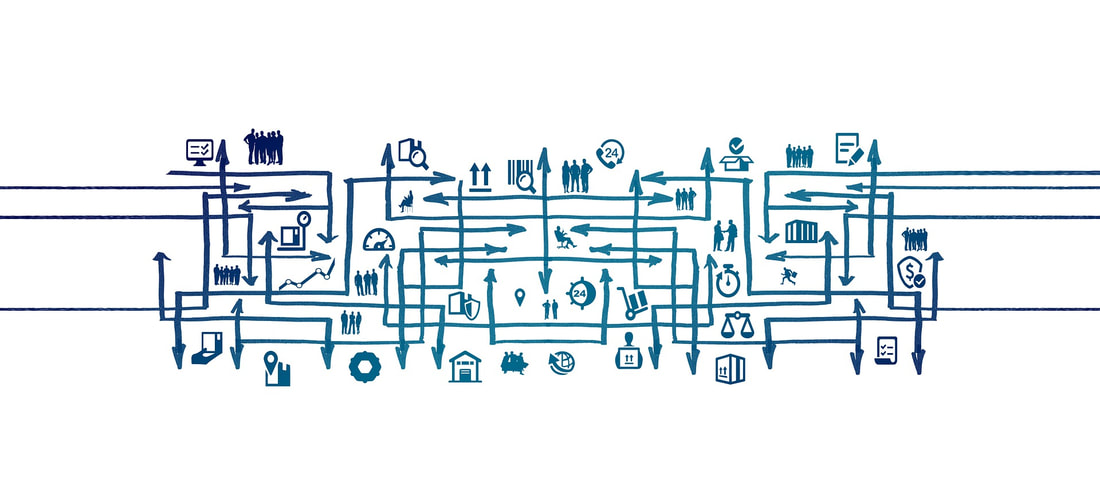

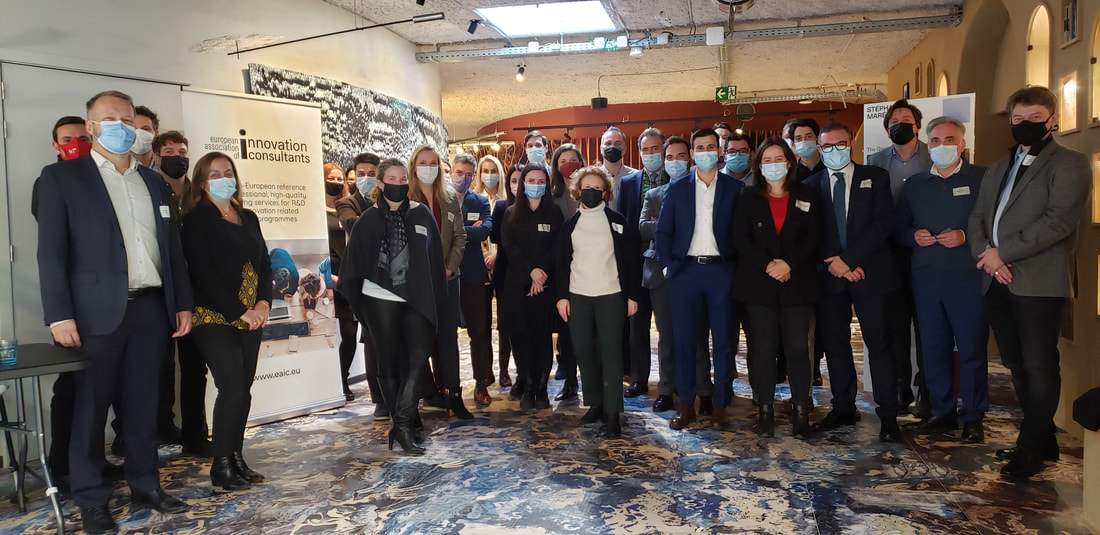

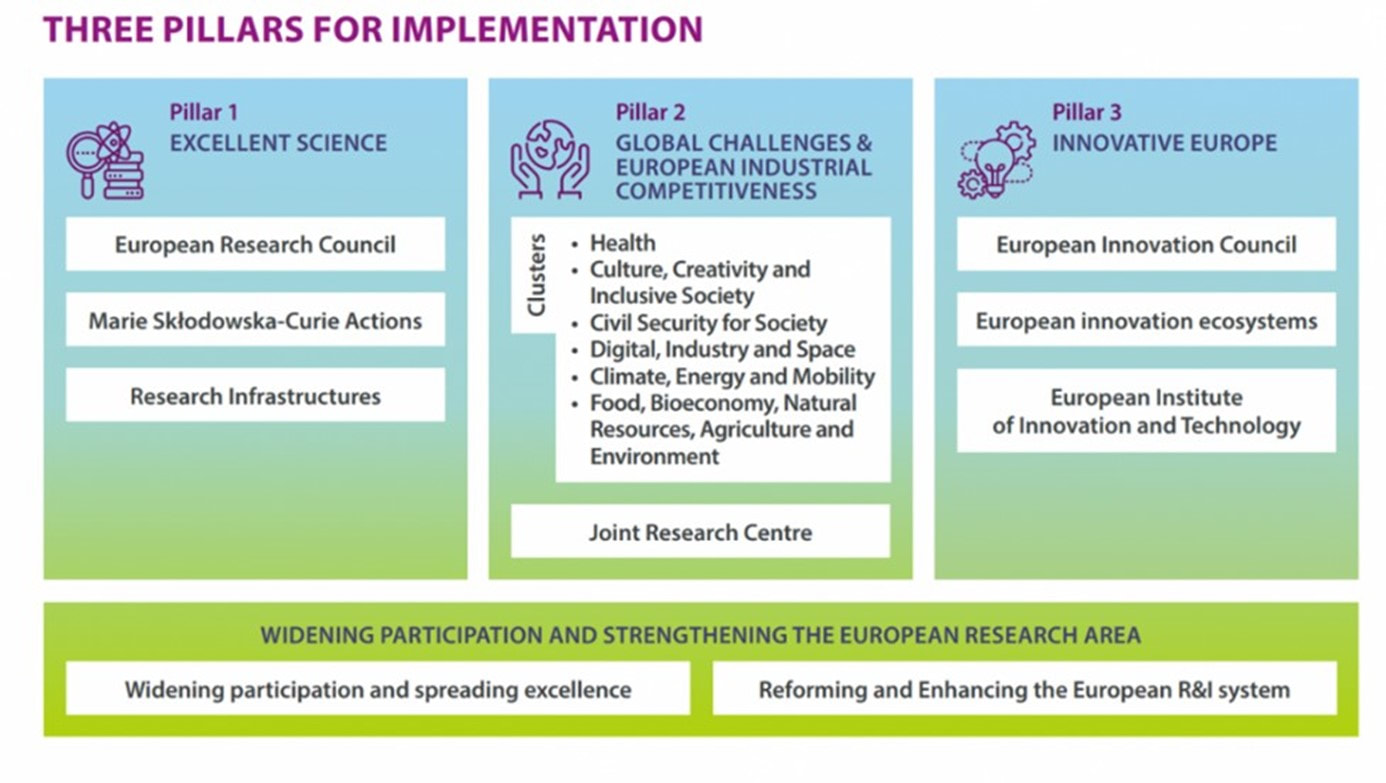



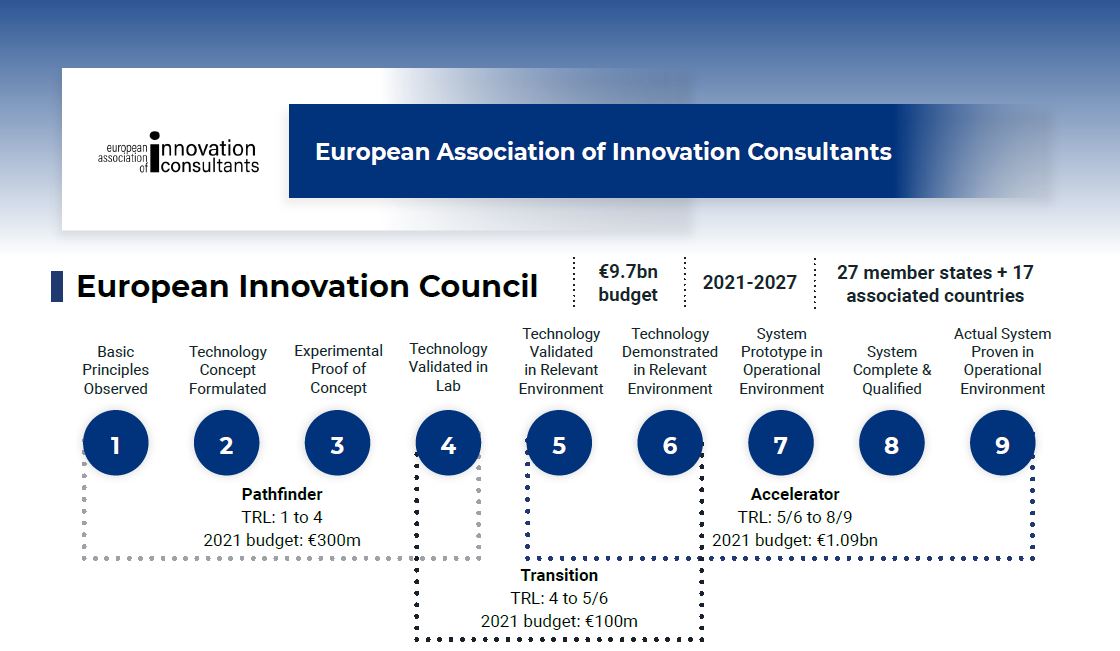
 RSS Feed
RSS Feed
